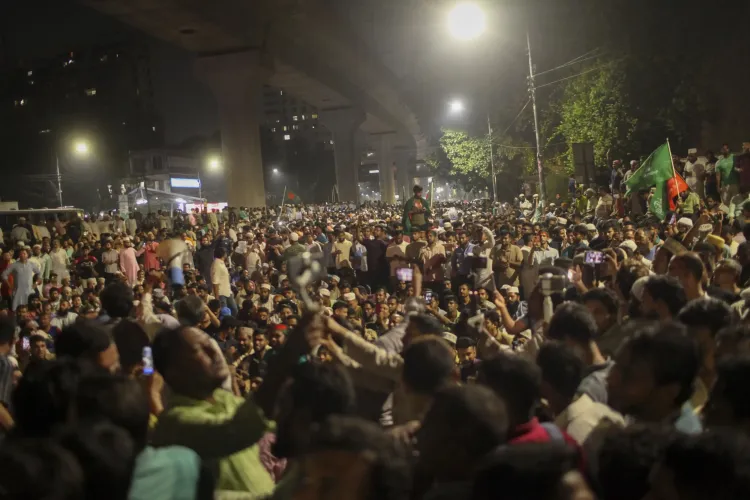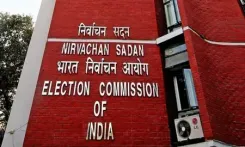Is Bangladesh Facing Another Uprising Amidst Political Turmoil?

Synopsis
Key Takeaways
- Bangladesh's Political Crisis: The nation is grappling with severe political instability.
- Radical Influence: The rise of radical groups is alarming.
- National Citizen Party: Formed by students, they aim to contest in upcoming elections.
- Election Concerns: Doubts linger about the fairness of upcoming elections.
- Potential for Uprising: Signs indicate another uprising could unfold.
New Delhi, Oct 10 (NationPress) While many had hoped that Bangladesh would return to a state of normalcy with the interim government declaring elections for early next year, a detailed examination of the current circumstances reveals a bleak outlook. Experts on Bangladesh indicate that the situation is deteriorating, with extremist factions increasingly influencing events.
Even the Bangladesh Nationalist Party (BNP) appears disillusioned with recent developments, expressing skepticism about the possibility of a genuine and fair election. There are growing concerns about whether elections will even take place. While political factions might attempt to resolve their disparities, the significant worry lies in the growing divide between student leaders and the interim government's advisers.
The uprising in August 2024 resulted in Sheikh Hasina's removal, and the imminent threat to the nation is a conflict between students and the interim government's advisers. The students who spearheaded the August uprising formed the National Citizen Party (NCP), declaring their intent to participate in elections anticipated in February 2026. Many within the NCP harbor deep mistrust towards certain advisers in the Muhammad Yunus-led interim government, suspecting them of negotiating with political parties for personal gain. Initially perceived as a mild accusation, NCP leader Sarjis Alam's statement that the only escape route left for the advisers was death underscores the escalating tensions.
Analysts are interpreting this as a precursor to significant upheaval. The situation mirrors that of Nepal, and it wouldn’t be surprising if the NCP, backed by students, takes to the streets once again, similar to their actions in August.
Compounding these issues is the involvement of the ISI, which utilizes Jamaat-e-Islami to further its agenda in Bangladesh. A chaotic Bangladesh serves the ISI's interests, as instability in the nation poses a threat to India's security.
The ISI views everything through an Indian lens; while aiding terrorist organizations in establishing camps, it also seeks turmoil in Bangladesh.
Furthermore, student leaders are increasingly suspicious of certain advisers in the interim government, believing they are colluding with political factions to preserve their positions. These advisers seem to enjoy their privileges and are keen to maintain their status post-elections.
The student leaders affiliated with the NCP feel the interim government has failed to fulfill promises. They had anticipated that following Sheikh Hasina's ouster, a stable administration would emerge to guide the country positively.
However, since the August uprising and Yunus's appointment, Bangladesh has attracted negative headlines due to widespread radicalization, rampant Islamist activities, economic decline, ISI interference, and increased persecution of minorities.
The NCP is advocating for elections to occur but doubts the interests of those in power, including Jamaat, in facilitating this process.
Even in the event of elections, skepticism remains about their fairness. This doubt is not confined to the NCP; it resonates with the general populace, many of whom express reluctance to vote, fearing an unfair electoral process. These developments and rising tensions within the administration strongly suggest that another uprising may be on the horizon.









